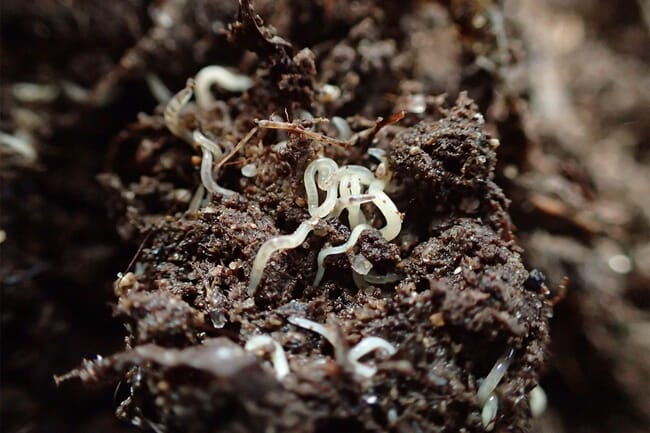
© FishLab
Currently, the production of fish fry for aquaculture relies on the use of aquafeed ingredients such as rotifers and small crustaceans, often enriched with fish oils, to provide the adequate nutrition for fish development. This process, particularly the use of fish oils sourced from wild-catch fisheries, significantly reduces the long-term sustainability of the industry, and can also fail to provide optimal nutrition for fish fry.
In response to the state of the current process for producing aquafeeds, researchers from Aarhus University have tested a method of cultivating marine enchytraeid worms for use as an alternative feed source, using decomposing seaweed as a substrate.
Utilising a mixture of potting soil and dried and rehydrated seaweed as a growth medium, the researchers managed to reach semi-industrial levels of enchytraeid biomass production, whilst maintaining minimal manpower and low operational costs.
Enchytraeid worms boast an optimal nutrient composition, characterised by elevated levels of protein, lipids, and long-chain omega-3 fatty acids. With the ability to be cultivated and fed on industrial organic residues, they offer a promising solution to reduce reliance on marine food sources, thereby alleviating pressure on marine ecosystems.
To determine the potential of the worms to act as an alternative aquafeed, the researchers tested the ability of the enchytraeids to provide nutrition for young juveniles of six species of cultured fish. Turbot, flounder and white fish showed significantly better growth when fed on live enchytraeids than on conventional aquafeed. Halibut and ballan wrasse grew at similar rates on both diets regimes, whilst kingfish was deemed an unsuitable recipient for the alternative feed.
Whilst the study may only reveal early insights into the use of enchytraeids as an alternative aquafeed, the research - funded by the European Maritime and Fisheries Fund - may provide the groundwork for the development of a revolutionary new aquafeed source.




